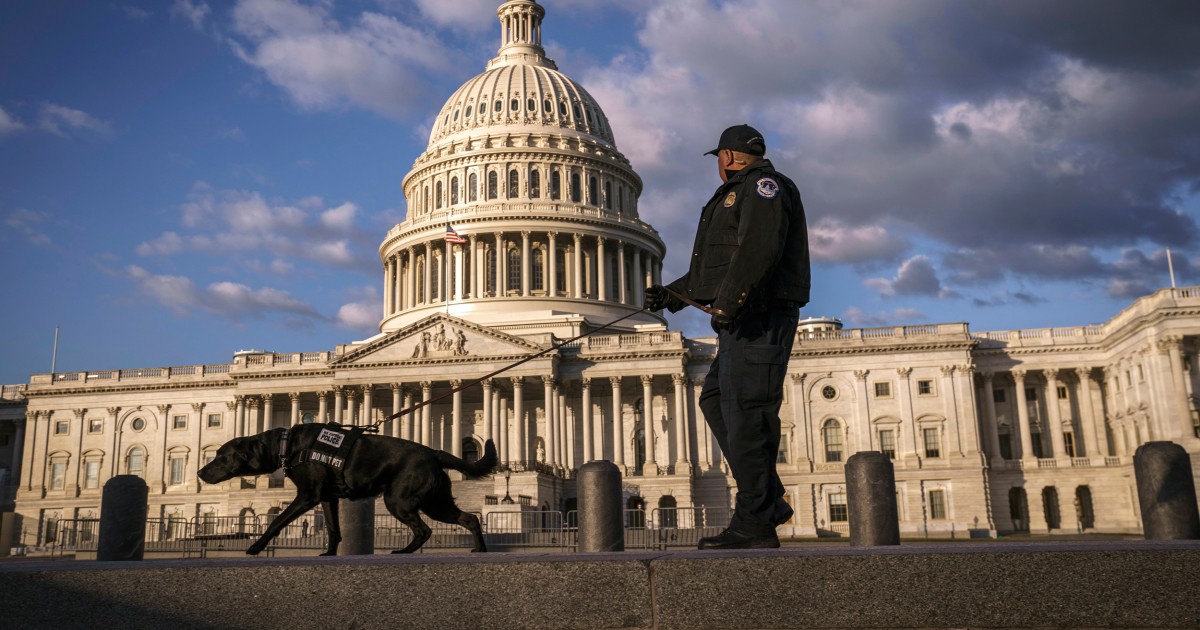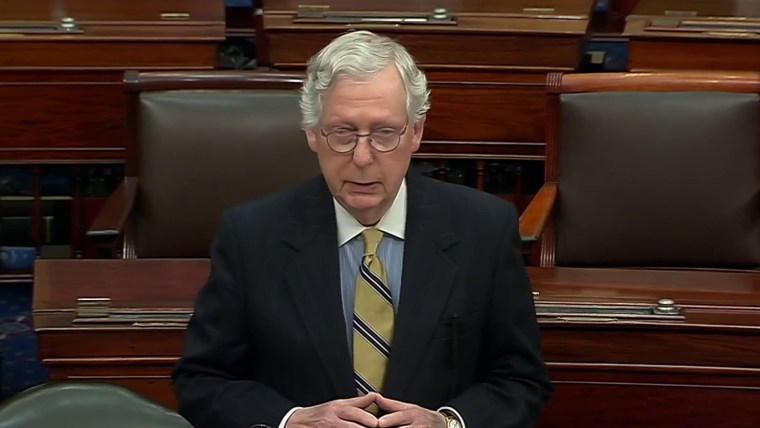WASHINGTON — Congress will confront a packed agenda when it returns from Thanksgiving recess, from facing hard deadlines to keep the federal government running to passing President Joe Biden’s $1.7 trillion safety net and climate legislation.
“When I look at this drama in the next month, I break it down into a miniseries. And the first part is the defense bill and a bridge to the budget. Vast majority of senators support that. We’ll get that done,” Sen. Amy Klobuchar, D-Minn., said Sunday on ABC’s “This Week.”
“Second thing, the debt ceiling. If the Republicans want to scrooge out on us and increase people’s interest rates and make it hard to make car payments — go ahead, make that case. We’re going to stop them from doing that,” she said before mentioning voting rights and Biden’s social spending bill. “And, finally, what we just talked about, the Build Back Better bill. We can get this done.”
The newly discovered omicron variant of the coronavirus, which has caused alarm and led to some new travel restrictions to the U.S., is also likely to be a hot topic.
Here are the big issues facing Congress in the final weeks of 2021.
Funding the government
Government funding runs out Friday, and it remains uncertain whether the parties can agree to a yearlong appropriations bill in time. But neither side wants a shutdown, so Congress could fall back on another stopgap measure to preserve funding at current levels.
The federal government is already functioning at levels agreed to during the Trump administration after Congress passed a stopgap bill in September. Democrats are eager for a new budget, but they need Republican support, because the legislation is subject to the 60-vote filibuster rule in the Senate.
“I am guessing what we may end up doing is a short-term extension. I’m not sure what that end date will be,” Rep. Debbie Dingell, D-Mich., said Thursday on MSNBC. “I’ve heard some in the Senate say February, which would be a gift but, I suspect, unlikely to be able to happen.”
Authorizing the military budget
Congress plans to expand the military budget. The House voted 316-113 in September on a bipartisan basis to pass a massive $778 billion Pentagon policy bill, known as the National Defense Authorization Act. The Senate plans to pass the legislation by the end of the year.
Sen. John Barrasso, R-Wyo., said on “Fox News Sunday” that the measure “should have been passed months ago, but it’s been on the back burner,” for which he blamed Democrats.
“We never want to send our men and women in uniform into a fair fight,” he said. “We want to make sure they have the equipment, the manpower, the firepower that they need.”
Some lawmakers object to further expanding the Pentagon.
Rep. Jake Auchincloss, D-Mass., a Marine veteran, said the military budget is “out of control.” And Sen. Bernie Sanders, I-Vt., said it’s “strange how, even as we end the longest war in our nation’s history, the war in Afghanistan, concerns about the deficit and national debt seem to melt away under the influence of the powerful military-industrial complex.”
Averting debt default
The deadline to raise the debt ceiling is Dec. 15, as set by the Treasury Department, before the U.S. risks depleting its borrowing authority to pay its bills. Breaching the ceiling could push the country into default and trigger a recession, Treasury Secretary Janet Yellen has warned.
The debt limit was raised last month on a short-term basis, and it was highly acrimonious. Democrats insisted that it be done on a bipartisan basis, and Republicans, after weeks of brinkmanship, dropped the filibuster and allowed it to come to a vote. It’s not clear whether Democrats will lift the debt ceiling on their own or demand another bipartisan vote this time.
But the temperature seems to have cooled since the last fight.
Senate Minority Leader Mitch McConnell, R-Ky., sounded a nonconfrontational note when he was asked about the debt limit on Nov. 16: “Yeah, we’ll figure out how to avoid default. We always do,” he said.
Passing the Build Back Better Act
The $1.7 trillion legislation is Biden’s top priority, and the Democratic-controlled Congress appears determined to send it to his desk by the end of the year. The House passed the bill Nov. 19, just before the Thanksgiving recess, on a vote of 220-213, with just one Democrat, Jared Golden of Maine, defecting and joining a unanimous GOP conference in opposition.
The bill now goes to the Senate, where Democrats need all 50 votes in their caucus to pass it. That won’t be easy. Some provisions, such as paid leave and higher limits on state and local tax deductions, are likely to change to win support. Other policies, such as changes in immigration law, risk running afoul of budget rules that limit the process to matters of spending and taxes.
And Republicans are expected to try to throw a wrench into the process during the so-called vote-a-rama with amendments designed to shrink the bill and disrupt the delicate deal among Democrats.
Dingell said: “I’m wondering if I will be home for Christmas. I have been a student of Washington for decades, and it is not unfathomable that we could be here between Christmas and New Year’s. American people elected us to get this done, and there’s so many things that people in our districts need that are in these bills.”






